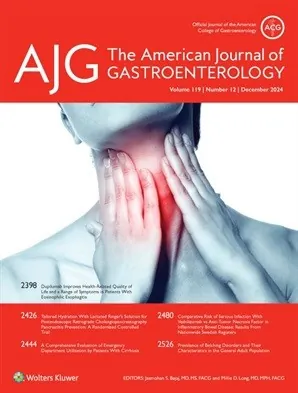
Alarming Rise in Outbreaks and Infections: What You Need to Know!
2024-12-17
Author: Wei Ling
Recent Surge in Malaria Outbreaks
A recent surge in mysterious illnesses in a remote region of the Democratic Republic of the Congo (DRC) has left health officials scrambling for answers. As reported by Reuters, new lab results indicate a possible severe malaria outbreak linked to malnutrition. Currently, the case count has skyrocketed to 592, with a concerning case-fatality rate of 6.2%.
This outbreak, which began in the Panzi health district of Kwango province in late October, has been challenging for investigators due to treacherous road conditions exacerbated by the rainy season. Initial symptoms reported include fever, headaches, cough, breathing difficulties, and weakness, typical of severe malaria but complicated by malnutrition.
As researchers work tirelessly to access the affected area, the National Institute for Biomedical Research (INRB) in Kinshasa has identified poor-quality initial samples. More comprehensive results are anticipated shortly, as additional respiratory specimens have been collected for analysis.
Surge in Drug-Resistant Infections
In another critical health development, a new study, published in The Lancet Infectious Diseases, highlights the effectiveness of the antibiotic ceftolozane-tazobactam in treating multidrug-resistant (MDR) Pseudomonas aeruginosa infections. This multicenter comparative effectiveness study conducted across 28 U.S. hospitals from 2016 to 2023 focused on 420 adult patients diagnosed with pneumonia or bacteremia caused by MDR P. aeruginosa.
The findings showed that 61% of patients treated with ceftolozane-tazobactam achieved clinical success compared to only 52% of those on ceftazidime-avibactam. This research underscores the urgent need for effective treatment options as resistance to antibiotics continues to pose a significant threat in medical settings.
Despite these promising results, the study cautioned about the concerning mortality rates and resistance development associated with both antibiotics, indicating a pressing need for further research into adjunctive treatment strategies.
Whooping Cough Resurgence
Shocking statistics reveal a sixfold increase in whooping cough (pertussis) cases in the U.S. from 2023 to November 30, 2024. According to a recent survey by the Annenberg Public Policy Center, many people remain unaware of the disease's existence and its vaccine-preventable nature. The survey, based on responses from 1,771 adults, indicates that roughly 30% of participants did not associate pertussis with whooping cough.
The Centers for Disease Control and Prevention (CDC) advises individuals aged seven years and older, including pregnant women, to seek the Tdap vaccine, yet public awareness remains alarmingly low. Additionally, this year's cases have reportedly surpassed 28,000, compared to 4,500 in the prior year.
New Mpox Cases in Germany
In a further unsettling illustration of current health crises, Germany has reported four new cases of mpox (formerly known as monkeypox), including infections in school-aged children. These cases stem from a family that recently visited Africa, highlighting the far-reaching implications of global travel on disease spread.
Health officials are diligently working to monitor potential exposure at schools and workplaces within the affected district while collaborating with the Robert Koch Institute. The clade 1b strain, which has been linked to over a dozen countries, including the U.S., is deemed more transmissible and virulent than previous strains.
Among these rising health threats, urgent action is needed to enhance public awareness and preventative measures in order to mitigate potential outbreaks. Are we prepared for a world where antibiotic resistance and viral infections are on the rise? The time to act is now!



 Brasil (PT)
Brasil (PT)
 Canada (EN)
Canada (EN)
 Chile (ES)
Chile (ES)
 España (ES)
España (ES)
 France (FR)
France (FR)
 Hong Kong (EN)
Hong Kong (EN)
 Italia (IT)
Italia (IT)
 日本 (JA)
日本 (JA)
 Magyarország (HU)
Magyarország (HU)
 Norge (NO)
Norge (NO)
 Polska (PL)
Polska (PL)
 Schweiz (DE)
Schweiz (DE)
 Singapore (EN)
Singapore (EN)
 Sverige (SV)
Sverige (SV)
 Suomi (FI)
Suomi (FI)
 Türkiye (TR)
Türkiye (TR)